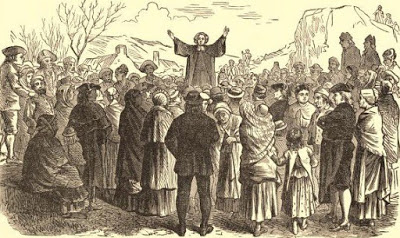The Great Awokening There’s a theory about the sins and shortcomings of society: they are all due to our failures of consciousness. If people were purer, given to understanding and following the true path, the problems of this world would cease to exist. According to this view, poverty and inequality are the result of greed, wars occur because people fail to see the humanity in the “enemy”, and bigotry feeds on fear and ignorance. The solution is to cleanse our consciousness and achieve enlightenment. This is the way of religion, which has endeavored to perfect the world for thousands of years, with mixed results. I’d like to think a more promising approach is to identify the structures in society—the laws, customs, institutions, and rules—that are
Topics:
Peter Dorman considers the following as important: politics, Taxes/regulation
This could be interesting, too:
Robert Skidelsky writes Lord Skidelsky to ask His Majesty’s Government what is their policy with regard to the Ukraine war following the new policy of the government of the United States of America.
Joel Eissenberg writes No Invading Allies Act
Ken Melvin writes A Developed Taste
Bill Haskell writes The North American Automobile Industry Waits for Trump and the Gov. to Act
The Great Awokening

There’s a theory about the sins and shortcomings of society: they are all due to our failures of consciousness. If people were purer, given to understanding and following the true path, the problems of this world would cease to exist. According to this view, poverty and inequality are the result of greed, wars occur because people fail to see the humanity in the “enemy”, and bigotry feeds on fear and ignorance. The solution is to cleanse our consciousness and achieve enlightenment. This is the way of religion, which has endeavored to perfect the world for thousands of years, with mixed results.
I’d like to think a more promising approach is to identify the structures in society—the laws, customs, institutions, and rules—that are responsible for these problems and change them. This is the way of politics, preferably informed by deliberation and experience. From a political perspective, trying to change people’s consciousness has some value as an end, but it is mainly important as a means, part of building a movement for collective action.
What I sense is that, for many on what considers itself the left, politics in the sense of the previous paragraph is a delusion, a repeating nightmare that one can only awake from, not transform. Instead, passionate energy is funneled into demanding changes in language, personal behavior and conceptions of one’s identity. Done right, that’s worth doing—better consciousness and behavior is better for all of us—but not as a substitute for politics. And if you take politics seriously, battles over culture and consciousness should be strategic, taking into consideration how they can best contribute to collective action.
As I’ve tried to imply in my subtler moments, the biggest, hugest, screamingest problem we face is a grotesque imbalance of power, and amid all the chatter over policy, investigations and reports, and cultural struggles, hardly any work is going into the organizing we need to build a counterpower to that of the Right. My fearless prediction is that, unless power is rebalanced, no accumulation of evidence, clever policy idea or righteous act of cultural subversion is going to make a damned bit of difference.
(Night thoughts on reading “The Koch Network and Republican Party Extremism” by Theda Skocpol and Alexander Hertel-Fernandez. Image credit: Venngage.)
